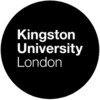The course is taught by design practitioners and researchers, and enriched by national and international visiting tutors from a range of creative industries in an expanded mode of design. Students will explore the role of graphic design as a tool through which to critically investigate current issues and contemporary visual culture, society, politics, identity, information, education, and technology.
Students will develop their practice with specialist support through adaptable ‘Platform' groups such as Socially-Engaged Design, Visual Identity and Branding, Language and Publishing, and Interactive Design. These groups provide a lens through which to respond to briefs in each module, and develop their own research methods and practice through an Expanded Research Project.
Kingston University employ developmental models such as the Double Diamond (Design Council, UK, 2006) to help structure a holistic development of students' research methods from initial observations and analysis, through seminars and reviews, and experimentation with media, to audience engagement. In this context, research is not only a working process it can also be considered an outcome in its own right.
At the end of the course, students will be equipped with a combination of creative and transferable skills, cognitive processes and methodologies that will help them to shape the future for business, culture and communities.
Kingston University allow students to do a 12-month work placement as part of their course. The responsibility for finding the work placement is with the student; the University cannot guarantee the work placement, just the opportunity to undertake it. As the work placement is an assessed part of the course, it is covered by a student's Student Route visa.







